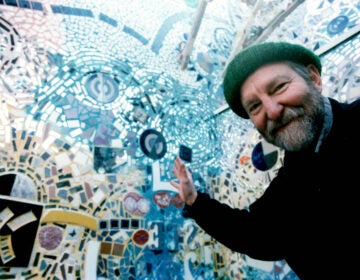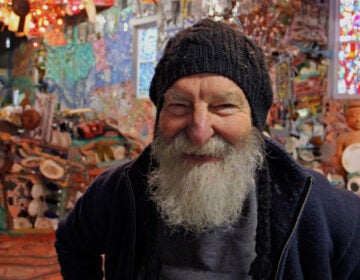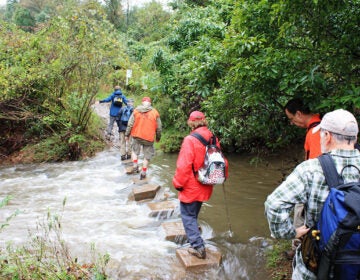Facebook faceoff: Artist embarks on ‘social networking stress test’
When does Facebook stop being your friend and start being a tyrant?
Philadelphia-based performance artist David Kim is trying to find the frontier of friending. For the month of April, he is doing everything Facebook tells him to do.
Facebook has algorithms that consider what you say you like, then suggests products, events and new friends you might also like. It’s supposed to be similar to the way a friend who knows you well will tip you off to things you’ll enjoy.
“Are these algorithms also looking out for my well-being, or is it a cold computer doing these things because it has to?” Kim ponders.
To put himself through a “social networking stress test,” Kim has vowed to friend everyone Facebook tells him to friend, comment on anything Facebook tells him to comment on, and attend every party and event he’s invited to. It can get awkward.
“It’s strange to have to go to these events and be insincere,” said Kim at a grand-opening party of Re-Load, a manufacturer and retailer of bike messenger bags in Northern Liberties. “Everyone else is here because they want to be here–or at least they can hide it. I can’t hide that fact. I have to be here. I’m going around like a wolf in sheep’s clothing.”
If you were to take Facebook to its extreme, would you be any better connected? Kim fits in at Re-Load because he is a bicyclist. But he doesn’t know anybody there, and is too shy to strike up conversations with strangers.
Nevertheless, he has to accomplish three things at every event: he must meet the host, he must Facebook-friend one person, and he must take a picture of the event. After all, this is a science experiment, and there must be hard data.
“Every has a very personal relationship with Facebook. It’s very different and unique according to every individual. It’s perfect for us to question, what are the boundaries of this?” said Kim at the keg in the back yard of the party. “I see this as a stress test.”
“If we have this leap in logic, and put absurd rules and stress-test the network, what are we going to find out about our personal relationship with Facebook?” he mused
If Kim is the guinea pig, the man in the white coat is his partner, James Weissinger. His job is to prioritize Kim’s party schedule, enforce the rules of the experiment, and monitor the results.
As in any good science experiment, he is finding unexpected results. He thought the interesting parts would be Kim’s real-world interactions with strangers, but the revelatory things are happening online.
“There’s this one amazing chain,” says Weissinger. “There’s this guy who refuses to friend Dave. He says, ‘All my Facebook friends I know in real life. I have a thousand of them, and they’re all important to me. And you, sir, are not important to me, and I’m not going to be part of your project.’ “
“He took the time to write this massive essay. Dave responds with two lines, and this guy responds with another dissertation on why he won’t be Dave’s friend,” continues Weissinger. “It makes me wonder at what point will they have spent so much time conversing with each other that they qualify as ‘knowing each other’ enough to solidify a Facebook friendship.”
At the end of the month, Weissinger will analyze all the data–including comment chains, party notes and Kim’s psychological state–and come up with results to be exhibited in May at Esther Klein Gallery in University City and at the new Little Berlin artist collective space in Fishtown. A half dozen other artists are also executing science projects as part of the Very Amateur Society for Science and Technology.
WHYY is your source for fact-based, in-depth journalism and information. As a nonprofit organization, we rely on financial support from readers like you. Please give today.




